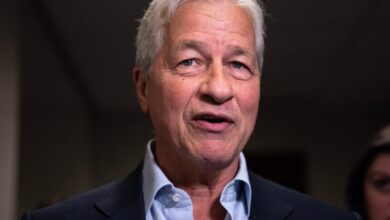New U.S. Rules on Electric Vehicle Tax Credits Add Complications to Biden’s Green Goals

The U.S. government has proposed new rules that could pose challenges to President Joe Biden’s ambitious target of having half of all new passenger vehicles sold in the country run on electricity by 2030. The proposed regulations, outlined by the departments of Treasury and Energy, aim to restrict electric vehicle (EV) buyers from claiming the full $7,500 federal tax credit if their cars contain battery materials from countries deemed hostile to the United States, including China.
Under the rules required by Biden’s climate law, the Inflation Reduction Act, EV buyers may not qualify for the full tax credit if critical minerals or battery components are sourced from a “foreign entity of concern,” defined as any company owned by, controlled by, or subject to the jurisdiction of North Korea, China, Russia, or Iran, with China being the primary focus.
The move is expected to impact consumer acceptance of electric vehicles, especially as the global supply chain for EV batteries relies significantly on foreign sources, particularly China. The lack of clarity on which vehicles will be eligible for the full tax credit under the new rules has created uncertainty among automakers and consumers alike.
The Treasury Department’s guidance emphasizes the need for automakers to establish robust supply chains in the U.S. and reduce dependence on foreign entities, aligning with the administration’s goal of boosting domestic production of critical minerals and battery components.
While the proposed rules aim to encourage the development of domestic auto-supply chains, critics argue that the transition requires substantial time and a comprehensive transformation of the U.S. industrial base. The rules have implications for major automakers, including General Motors and Hyundai, who are actively working to establish U.S. factories for battery production but are still reliant on foreign sources for critical minerals.
The rules set varying requirements for battery content, including a stipulation that, beginning in 2024, an eligible clean vehicle must not contain any battery components manufactured by a foreign entity of concern. By 2025, the vehicle must not contain any critical minerals that were extracted, processed, or recycled by such a foreign entity.
While the new regulations could pose challenges for the EV market in the short term, the transition to cleaner energy sources remains a key aspect of Biden’s environmental agenda. The proposed rules aim to strike a balance between promoting domestic production and supporting the growth of the EV industry. However, the intricacies of these regulations and their impact on automakers will unfold in the coming years as the industry navigates the complex landscape of global supply chains.



